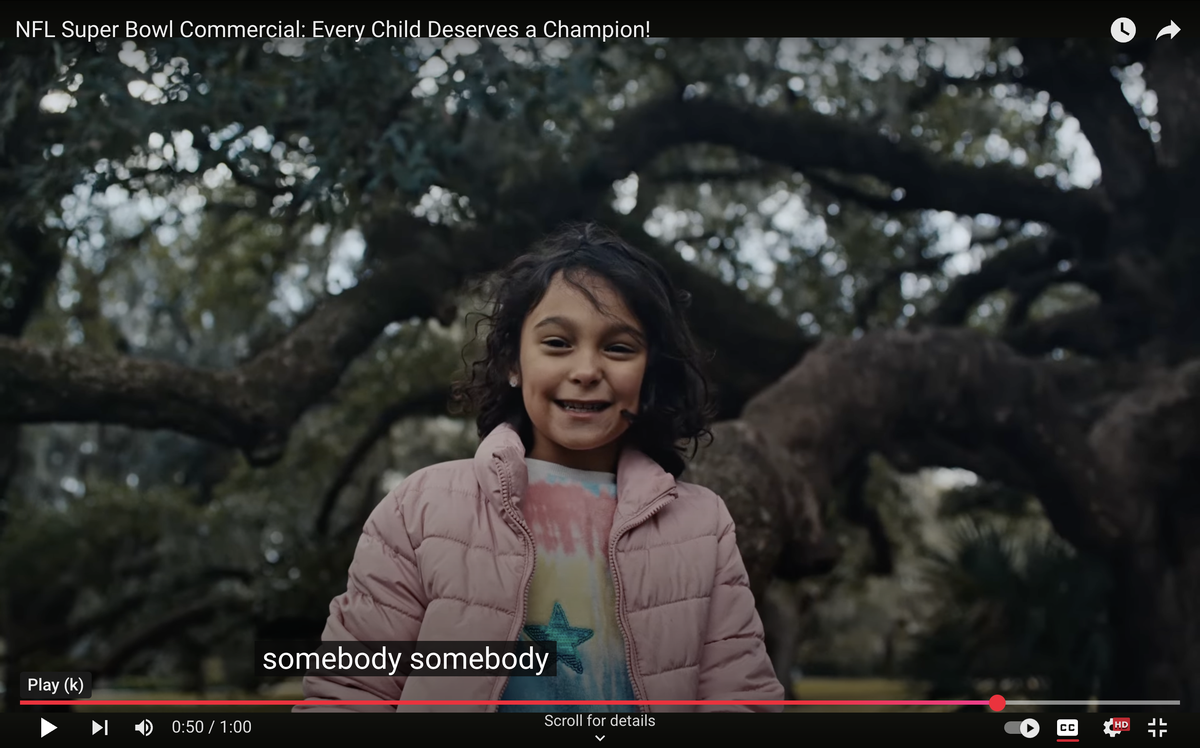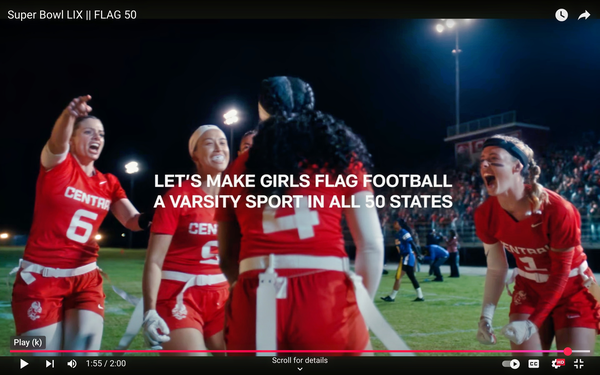The Super Bowl continues to reflect the zeitgeist of the nation. Super Bowl LIX had fewer hard-hitting social cause messages than years past. This, due to issue and polarization fatigue
from the deluge of news and opinions in the 2024 presidential election, and corporations’ fear of alienating President Trump.
Five years ago companies were lauded for their social
consciousness. Half of the top 10 Super Bowl ads in 2019 focused on social causes: Microsoft’s “We All Win,” Audi’s “Cashew,” Google’s “100 Billion Words,” Budweiser’s
“Wind Never Felt Better,” and Verizon’s “First Responder.”
advertisement
advertisement
As the “Brands Take
Stands” era abates, safe ads that provide a respite from the fray abounded in this year's pigskin party. Humor, babies, animals, and celebs ruled the Big Game.
A couple of standout
successes returned – Doritos’ fan-created spot, “Abduction” featured a sci-fi fan fighting an alien over a bag of Doritos and Budweiser’s Clydesdale foal made its
“First Delivery” of a fallen beer barrel from a Bud horse carriage. Noteworthy entrees included “When Sally Met Hellmans” with Meg Ryan and Billy Crystal recreating the
(in)famous diner scene; the Muppets exuberantly searching for vacation options for Booking.com; and a whimsical call of mustaches to bring Pringles to the party.
NFL & Super
Bowl Politicized
While there may
have been a concerted effort by advertisers to depoliticize the Super Bowl, it became political when Donald Trump attended as the game’s first sitting president. His presence produced an
expensive security operation, and took centerstage when the crowd erupted in boos as he arrived and cheers when he saluted during the National Anthem. Charged memes and reactions proliferated on
social media throughout the game.
The NFL awkwardly created its own social issue story by changing the message on the end zone from “End Racism,” used since 2020 in
the aftermath of the George Floyd protests, to the more tepid, “Choose Love.”
NFL spokesman Brian McCarthy pegged the change to SoCal wildfires, the terrorist attack in New
Orleans, the mid-air collision in DC, and the plane crash in Philadelphia. What do those events have to do with racism?
Asked about DEI, NFL commissioner Roger Goodell said the NFL is not
walking back from DEI and believes it contributes to its strength.
The NFL countered the possible franchise cancellation of DEI with two cause-related ads and the New England
Patriots’ owner weighed in on his own.

This spot focused on the NFL's work with more than
50,000 youth organizations worldwide, including Big Brothers Big Sisters. It featured adults encouraging children to confidently express positive, life-affirming statements about themselves as
somebodys, capable of achieving great things. The spot echoes the “Every child deserves a champion” message of educator Rita Pierson, and resolves with the card, "Every kid can be
somebody. If they have somebody to show them the way.”

After halftime, the NFL showcased a two-minute spot promoting
girls’ flag football. The spoof on classic ‘80s high school flicks includes NFL veteran and ESPN Host Pat McCafee, calling a game between NFL stars Justin Jefferson, Marshawn Lynch, and
Myles Garrett and a team of top female flag football players. The spot ends with the message, “Let’s make girls flag football a varsity sport in all 50 states.”
Patriots owner, Robert Kraft, ran an anti-hate ad for the
Foundation to Combat Antisemitism. Rapper Snoop Dogg and former Patriots quarterback Tom Brady lob a spate of hateful refrains at each other, revealing the stupidity of prejudice. A card reinforces,
“The reasons for hate are as stupid as they sound.” Together, Brady and Snoopy experience a revelation that prejudice is senseless. The spot sends viewers to social campaign:
#StandUpToAllHate.
Female-Forward Social Spots
This year’s Super Bowl saw a wave of advertisers shifting toward more health-conscious and
female-focused messaging, covering topics like breast cancer awareness, obesity, and body positivity. This marks a departure from recent years, when the game’s commercials were dominated by ads
geared toward young men, often centered on sports, betting, and cryptocurrency.
Dove highlighted the issue of low body confidence in young girls with a spot with a toddler girl joyfully running down a sidewalk. On screen we see,
“At 3, these legs are unstoppable.” As she runs, another card says, “At 14, she’ll think they’re unbearable.” And then, “1 in 2 girls who quit sports are
criticized for their body type.” Finally, “Let's change the way we talk to our girls. #KeepHerConfident.”
Novartis debuted on the Super Bowl with a breast cancer
awareness ad with comedian Wanda Sykes and actress/singer Hailee Steinfeld. It portrays images of women’s breasts as symbols of sex to get viewers’ attention and then flips the script with
the message, “Let’s give breasts the attention they deserve most.” The spot then goes on to prioritize understanding breast health and breast cancer risk at: YourAttention.com.
A non-partisan group of climate scientist moms boosting
the public’s understanding of climate change and its impacts, ran an ad with a montage of girls growing up -- starting as babies, taking first steps, then leaving for college. The VO describes
the amount of carbon pollution emitted and land taken by wildfires at the girls’ different ages. It adds, “What will the effects of climate change look like before our daughters grow
up?” and urges donation to wildfire victims at: Sciencemoms.com.
Hims & Hers, a telehealth startup, ran its first Super Bowl ad this year, spotlighting America’s obesity epidemic and the need for more
affordable weight loss drugs. It blames obesity on a system that “feeds on our failure” and is “built to keep us sick and stuck.” The ad proclaims you can “fight
back” by using their weight loss medications.
Overall, this year’s Super Bowl ads weren’t a touchdown for creativity, but their comedy and nostalgia certainly
lightened the mood. As to the issue-oriented spots, it’s puzzling that women have become the “safe space” for social cause messages. Seems a little 1973 to me, but if it leads to the
restoration of Roe v. Wade, I’ll take it.